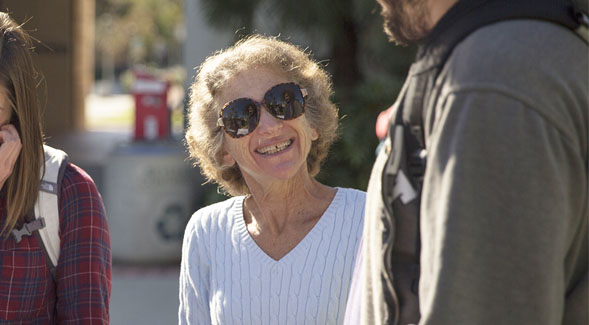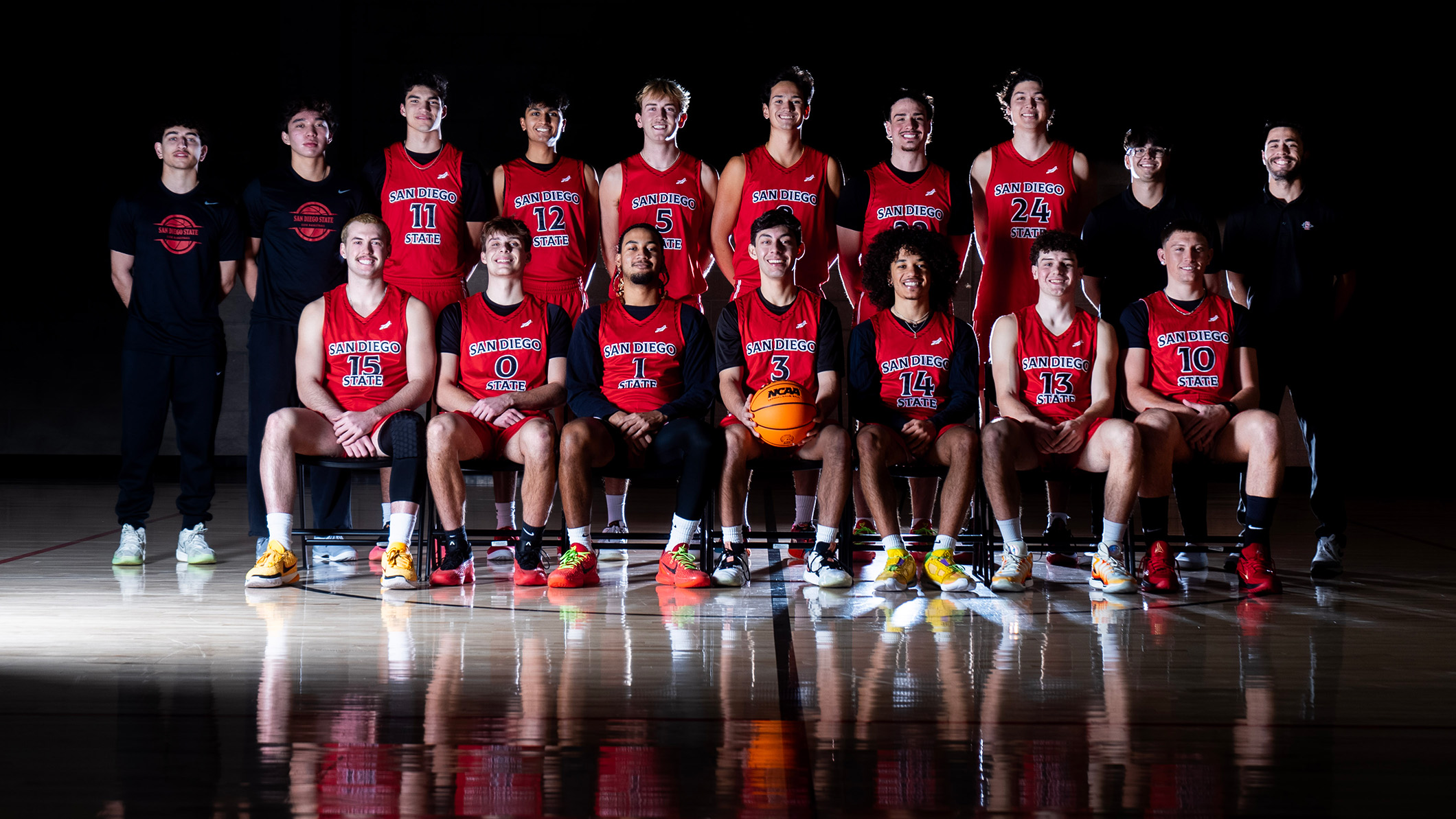A Conversation with Senate Teaching Awardee Eve Kornfeld
Kornfelds career is proof that education can be innovative and interactive.

Eve Kornfeld, professor of history at San Diego State University, said she has been teaching “since I could talk.” But although she enjoyed instructing at Harvard University and Princeton University, Kornfeld said she never really learned to teach effectively until she came to SDSU in 1986.“The lesson is that you cannot do it all yourself, and you don’t have to when you empower students to take control of their education.”
“This is where I learned to give students a voice in their own education,” she said.
Kornfeld is the 2017-18 recipient of the SDSU Senate’s Teaching Excellence Award, but this is not the first public recognition of her superior pedagogical skills. She received SDSU’s Excellence in Teaching Award for the Humanities and Social Sciences in May 2017. She was also honored twice in the last four years as the Most Influential Professor of SDSU’s Outstanding Graduate in Social Science, and twice before that as the Most Influential Professor of SDSU’s Outstanding Graduate in History.
“Professor Kornfeld’s dedication to teaching challenges students to understand history in the context of their present-day lives,” said Chukuka S. Enwemeka, provost and senior vice president.
Launched by an experiment
Kornfeld’s career is proof that education can be innovative. Two years ago, she served as thesis chair for 12 master’s degree students; all had applied for spring 2016 graduation.Recognizing that she couldn’t possibly meet each student individually for mentoring and thesis direction, Kornfeld created a special section of History 797 as a thesis advisory class. The group met weekly with Kornfeld to present progress reports, provide peer mentoring and allow students to edit each other’s thesis drafts. Of those 12 students, eight presented at the SDSU Student Research Symposium and two won awards; six presented at the national Popular Culture Association conference in Seattle; and nine graduated right on schedule in spring 2016.
“Most of them are teaching now at UCSD or local community colleges,” Kornfeld said. “They were launched by this experiment. The lesson is that you cannot do it all yourself, and you don’t have to when you empower students to take control of their education.”
Democracy begins in conversation
A first-generation college student at Princeton University, Kornfeld considered majoring in physics, cognitive psychology, art history, and comparative literature and culture before committing to history—what she calls “the most catholic of disciplines.” Her mentor was Carl Schorske, whose book of essays on fin de siècle Vienna and the artistic geniuses working there, won the Pulitzer Prize in 1981.“Schorske taught me to look for connections between and among disciplines,” Kornfeld said. “My commitment to interdisciplinary scholarship and teaching is due in part to his influence.”
Kornfeld completed her Ph.D. at Harvard University with a concentration in American and European cultural history, then lectured at Princeton before joining the faculty at SDSU. She soon realized that many in her classes were first-generation students themselves or returning students who worked one or more jobs to finance their education.
“I learned to make every moment in class count. Over time I realized that ‘covering’ facts and events is not as important as ‘uncovering’ what might transform the lives of the students before me,” Kornfeld explained. “As John Dewey said, ‘Democracy begins in conversation.’ What’s really important is to examine whose voices we include and whose get left out, to connect American history with the injustices in our own lives.”
Transforming teaching
Innovator that she is, Kornfeld chose to structure this year’s award ceremony a little differently. Rather than lecture, she will lead an interactive conversation titled “Transforming Teaching and Learning in the 21st Century.”Joining her in conversation will be the other six nominees for this year's Senate award: Subrata Bhattacharjee from the College of Engineering; Christopher Harrison from the College of Sciences; Kurt Lindemann from the College of Professional Studies and Fine Arts; Amy Randel from the Fowler College of Business; Jeanette Shumaker from SDSU-Imperial Valley; and J. Luke Wood from the College of Education.



